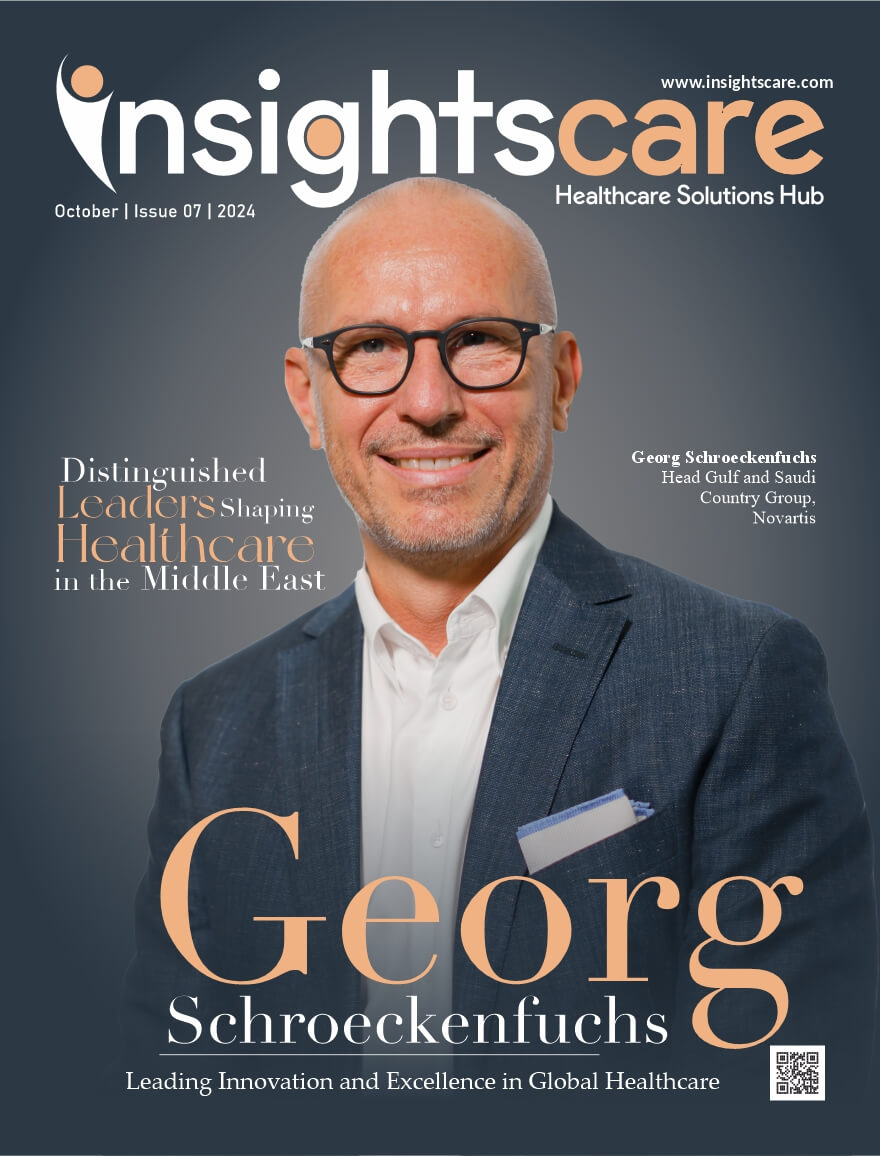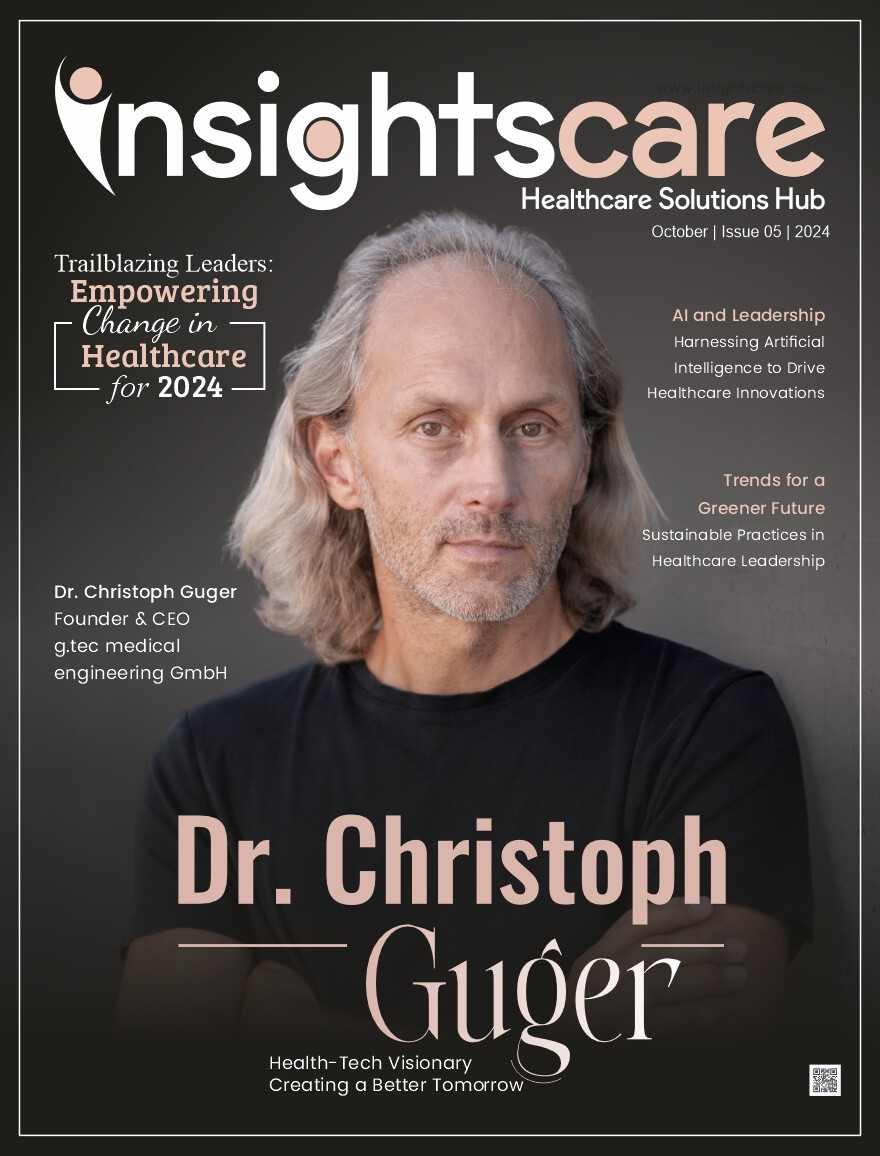The healthcare industry is looking for better answers to diagnose and treat various life-threatening diseases we hear of today. One of these diseases that the industry is trying to combat since long is cancer. Although there have been various advancements related to cancer treatment, no specific solution is reached yet. By far, the best possible solution comes from gene therapy. Apart from cancer treatment, gene therapy has showed a lot of potential to improve the treatment of number of deadly diseases.
Sanomics is a fast-growing company, which is contributing relentlessly to the future of healthcare with novel gene therapy solutions. It is remarkably revolutionizing cancer treatments for the patients with safe and efficient liquid-based and tissue-based genomic tests. To know more about the story of this ingenious company, we at Insightscare bring to you an exclusive interview with its CEO, Mr. Sy Ming Yiu, Stanley.
- Tell us in brief about Sanomics Limited.
Established in Hong Kong Science and Technology Parks Corporation in 2015, Sanomics Limited is a Hong Kong based biotechnology start-up that specializes in liquid biopsy and tissue-based genomic diagnostics for cancer patients, so as to help doctors decide personalized cancer solutions for patients. Since 2015, Sanomics’ service covers 20 countries and regions and it has completed more than 7,000 patient cases over the world. Sanomics (Thailand) Limited was founded in October 2018 in Bangkok, which is the first Hong Kong biotechnology start-up launched in Thailand.
Focusing on lung and women cancer, Sanomics’ comprehensive cancer genomic screening services covers both somatic mutation and germline mutations, adopting Droplet Digital Polymerase Chain Reaction (ddPCR), Next Generation Sequencing (NGS) technology to complete Comprehensive Genomic Profiling (CGP), and Real-time Polymerase Chain Reaction (Real-time PCR).
- What were the motivating factors that led towards the inception of the company?
“Patient first” is absolutely the most motivating factor. An accurate genomic test result is critical for helping doctors to design a personalized treatment for cancer patients. We strive to provide the genomic tests which are of higher quality, cheaper price, and quicker turnaround time to help cancer patients to save time and medical expenses.
- Which is your flagship product? Also, tell us how Sanomics stands tall and differentiates itself from others in this competitive world.
Requiring only 20ml of blood and 2 working days of turnaround time, p-EGFR® liquid biopsy test detects the EGFR gene mutation which causes lung cancer. Comparing with traditional tissue biopsy which is an invasive operation, costly, and time consuming, p-EGFR® is non-invasive, affordable, and quick. Since the launch of p-EGFR® in August 2015 in Hong Kong, it has become the market leader in Hong Kong within just 8 months.
What makes Sanomics stand out is our dedication to execution. We always emphasis the innovation of Sanomics is in execution. Ranging from test request, specimen collection to release report, we try our best to keep the process as simple as possible, so that physicians’ precious time can be spent on treating patients instead of dealing with clumsy procedures.
For example, we simplify the process of requesting Sanomics’ tests to 3 steps only and keep our form and test report in 1 page to save time of physicians. Also, we launched Sanomics Portal mobile app for doctors to keep posted.
- What are all the products and services that Sanomics Limited provides?
| Test | Brief of test |
| The pEGFR® test screens for the presence of Exon 19 deletions, Exon 21 L858R, Exon 20 T790M, C797S mutations in blood specimens using droplet digital PCR technology. This test is useful for assessing and monitoring whether TKI therapies would be effective mostly for lung cancer patients. | |
| The pBRAF V600ETM test screens for the presence of BRAF V600E mutation in blood specimens using droplet digital PCR technology. The test targets lung, thyroid, colorectal, and melanoma and it is useful for assessing whether the indicated therapies would be useful. It is suggested that if the test results are positive, dabrafenib, and trametinib can be used as targeted therapy. | |
| Guardant360® identifies somatic mutations of 73 genes, proven to be clinically relevant, and reports on microsatellite instability (MSI) status through the detection of circulating tumor DNA (ctDNA) in blood specimens using NGS technologies. The test is suitable for patients with advanced solid tumors. The report would present targeted treatment options including approved therapies and therapies undergoing late-stage clinical trials, as well as immunotherapy options. The test would be performed in the US. | |
| BRCA Zoom® identifies germline mutation of BRCA1 and BRCA2. The test is suitable for patients who have been diagnosed with breast, ovarian, prostate, and pancreatic cancer; people with family history of the above mentioned cancer and other cancer high-risk groups. Each person carries BRCA1 and BRCA2 genes. These two genes are mainly responsible for repairing damaged DNA and maintaining stable cell growth. If a person carries a mutation of the BRCA gene, the risks of developing breast, ovarian, prostate cancer or pancreatic cancer in a lifetime also increases. Also, the family members of that person would also have a possibility of carrying the mutated BRCA genes. | |
| OncoSnap® is a pioneering tumor tissue profiling test which screens for clinically relevant somatic mutations of 130 genes in solid tumor tissues by using NGS technologies, and offers FDA-approved therapies undergoing clinical trials. Able to detect single nucleotide variations (SNVs), insertions and deletions (indels), selected fusions and copy number alterations | |
| OncoSnap BRCATM is a pioneering NGS-based tumor tissue profiling test which screens for somatic mutations of BRCA1 and BRCA2 genes in solid tumor tissues. This test is useful for assessing patients who are diagnosed with breast cancer, ovarian cancer and prostate cancer on whether they could be benefited from selected PARP inhibitor treatments. | |
| OncoSnap NonetTM screens for 9 genes in tumor tissue samples, intending to aid physicians to identify multi-genetic biomarkers for potential treatment options for primary diagnosed non-small-cell lung cancer patients. | |
| PD-L1 IHC 22C3 pharmDx is a qualitative immunohistochemical assay using Monoclonal Mouse Anti-PD-L1, Clone 22C3 to detect PD-L1 protein in FFPE tissue specimens using EnVision FLEX visualization system on Autostainer Link 48. It detects PD-L1 expression with a dynamic range of tumor-positive (TPS) 0-100% and combined positive score (CPS) 0-10+. Cancers include lung cancer, gastric cancer, urothelial cancer, cervical cancer, etc. | |
|
(available in Thailand only) | EmbryoSafeTM screens all 24 chromosomes of IVF and ICSI embryos to detect pathogenic chromosome copy number changes, including aneuploidy, mosaicism, unbalanced translocations, and microduplications/microdeletions (> 10 Mb). |
- With respect to your distinctive products and services, how have you helped bring positive developments in the healthcare industry?
Sanomics contributed to provide genomic tests to help doctors decide personalized cancer solutions for patients. We keep providing solutions to tackle with the pain points in current cancer management process. For example, Sanomics is the first local private company in Hong Kong to adopt liquid biopsy, a non-invasive cancer screening technology that spares patients from the painful tissue biopsy, a traditional procedure of collecting tissue samples from tumors. Another example is that tissue samples often run outs before answering all the clinical questions that guide treatment selection, therefore, by launching OncoSnap NonetTM , this test can screen for 9 genes in tumor tissue samples to make best use of tissue.
- Are there any social activities that your company organizes to uplift healthcare space?
To raise the public awareness of adopting genomic test in cancer management, Sanomics organizes workshops and seminars for healthcare professionals and general public. We also co-operate with our strategic partners, such as AstraZeneca and Bio-Rad to organize large scale symposium, to discuss about the latest development of genomic diagnostics and provide a platform for intellectual exchange in the healthcare industry.
- Tell us some interesting things about your leader (CEO, CFO, COO or any other personality which you want to highlight in this issue).
“Keep moving, keep thinking and keep solving”, this is the common value that we share in Sanomics.
- Mention the notable awards and accreditations Sanomics has received so far.
So far, Sanomics has won 19 awards. Some highlighted awards include:
- 2018 The Top 50 Innovative Biotechnology Enterprises in Guangdoug-Hong Kong-Macau Greater Bay Area by ZDVC Research Institute, KPMG & Guangdoug Medical Valley
- Innovative Business Gold Award 2018 by The Hong Kong and Shanghai Banking Corporation Limited and Hong Kong Economic Times
- Caring Company Award by The Hong Kong Council of Social Service
- Can you share with us your upcoming projects?
Big data will be our next step. Big Data is everywhere in our daily life, actually DNA big data can also be digitalized to assist scientists and doctors to analyze and make advances in cancer treatment. Currently, there is no existing DNA database of Asian cancer patients. To address the need for building Asian cancer patients’ big data, we initiate to establish a DNA Big Data Centre in Hetao district at Lok Ma Chau. By doing so, we aim to attract more genetic related start-ups to set up their offices in Great Bay Area, so as to create an ecosystem of biotechnology companies in Great Bay Area.
The initial design of this DNA big database is by subscription base. The meta data of the database will be open for public access. However, to get full access, users must register and pay certain amount of subscription fee, as well as unveiling their data model to sustain the platform. The three main roles of the owner of this DNA Big Data Centre are – first, to provide basic legal support and protection to the DNA data supplying and demanding sides; second, to set up a rating scheme and payment scheme for DNA data transaction; and thirdly, to be the DNA big data manager. The idea of this Asian DNA big data base is like a combination of Asian DNA eBay and DNA cloud.
We believe that more valuable studies and commercialized applications of DNA data will be generated once this Asian Big Data sharing platform has been launched. We foresee that ultimately this will enhance the overall life quality and improve the cancer solution for Asian.






